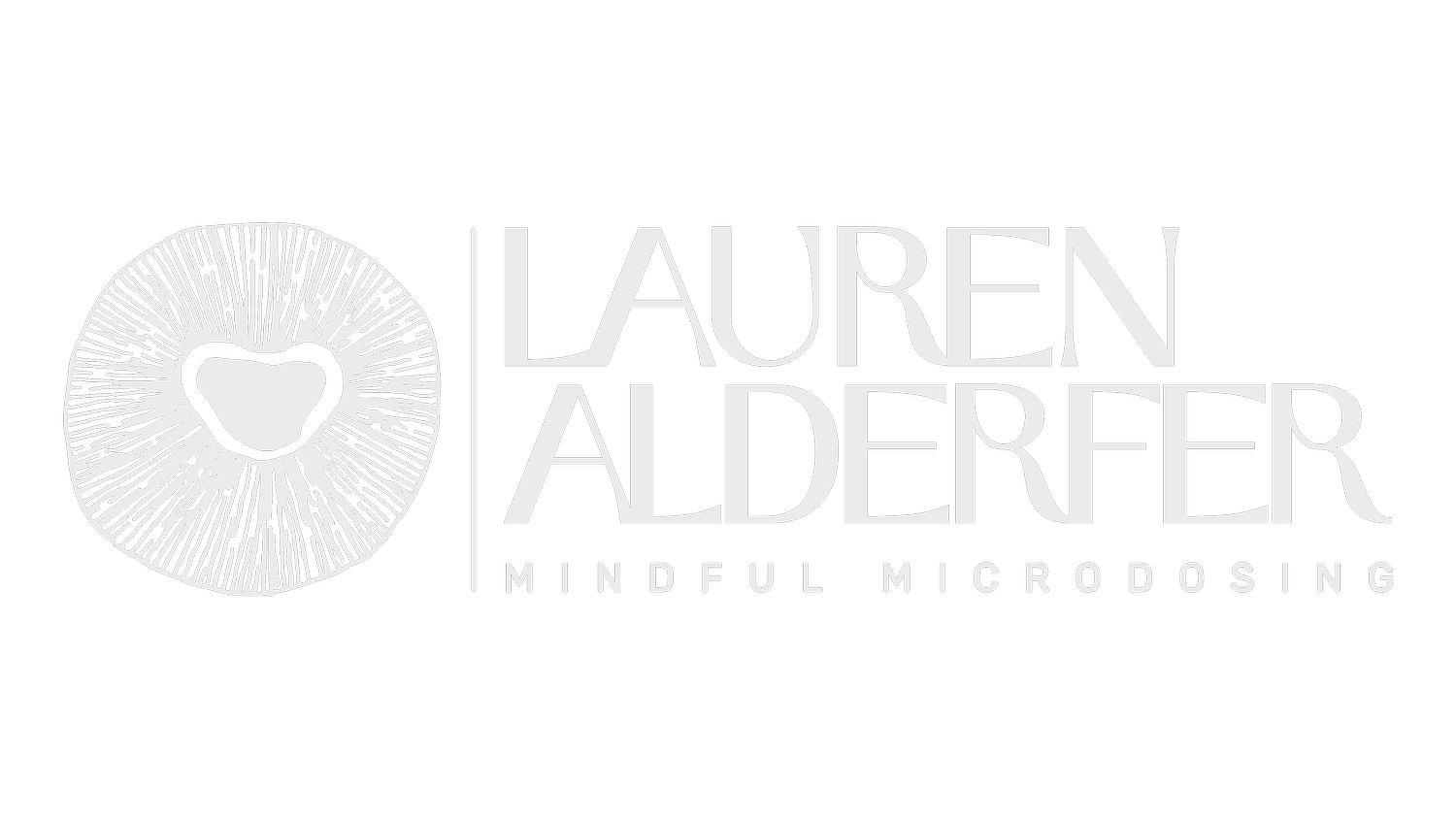A Mindful Approach to Dementia & Psychedelics: Our Shared Journey Series - Microdosing and Caregivers: A Powerful Support for Health and Well-Being
As a long-time mindfulness practitioner, teacher, and author, I was perhaps the most astounded of all to find myself training with the Microdosing Institute to learn about how to microdose. Then I took the ten-month training course to become a Microdosing Facilitator and Coach. Those ten months changed the course of my life. Not only were both courses exceptionally well-designed and delivered, but they also gave me a solid foundation to understand the mindful and respectful therapeutic and transformative power of microdosing. I firmly believe that mindfulness and microdosing, even for baby boomers, is a supportive practice.
Upon completing the training, I began to coach others on how to microdose. I continue to work one-on-one with people as well as offer online courses on Mindful Microdosing and other useful skills related to microdosing, such as intention setting and how to use a scale.
I have recently started sharing my journey with my husband, who has early-stage Alzheimer’s. As a strong advocate for MINDFUL microdosing, this now includes MINDFUL MICRODOSING for those with early stages of dementia and their CAREGIVERS. Caregivers include both partners or spouses as well as adult children providing care for an aging parent. Currently, one out of five Americans is providing care—a worrisome 20% of the population—with estimates growing each year.
Astounding—nothing short of astounding is how I would describe a phenomenon I have witnessed over time. Simply put, caregivers initially seek me out for help with the early signs of dementia in a loved one. Inevitably, microdosing becomes a powerful practice for themselves as caregivers. And why wouldn’t it be astounding? Depleting one’s own energy is oftentimes the outcome, with its unhelpful effects of caregiver burnout symptoms. With microdosing, a balance is regained, boundaries to ensure one’s own health and wellness are common, and moreover, there is an easy-going feeling, so that there is notably less frustration and more tolerance: a positive attitude and uplifting energy.
In actual numbers, about 53 million Americans are currently caregivers for an adult family member or friend. Thirty percent of caregivers die before the person they are caring for. The case for self-care for caregivers is strong. The Cleveland Clinic estimates that there is a 60% burnout rate for caregivers. Frustration, irritability, lack of concentration, and loss of interest in activities are a few symptoms cited. In fact, signs and symptoms of caregiver burnout are similar to those of stress and depression.
While I have witnessed all the above-mentioned symptoms improve with microdosing, these same benefits have been noted by the Microdosing Institute. In fact, research cites that microdosing has shown improvements in each of the following domains: mood, anxiety, meditative practice, exercise, eating habits, and sleep.
Caregiving from the heart… of mindfulness… where the heart can grow and shower more loving-kindness and compassion, a greater sense that all is well, and where deep listening from the heart is more available, are just some of the benefits I have felt in my caregiving. At the same time, I feel a strength in my own sense of self, ensuring health and wellness. I engage in empowering activities that fuel my own nourishment of heart and mind. I do believe microdosing has helped this mindful, positive attitude. It serves me well during the challenges of increased caregiving, which include increased loss and sadness as I witness my husband’s decline. I do witness and feel the pain, but I can remain on solid ground.
Checking out future options for caregiving beyond what I can offer my husband is also to consider what will be sustaining and nourishing for me. For instance, once an assisted living situation is chosen—either at home or close by—what will my life be like? Is there a supportive community where I flourish? Are there passions and interests I pursue? Will I be connected to family and friends?
Arriving in Mexico for these next three months is an opportunity to contemplate those questions and explore possibilities. I will be sharing our considerations from two perspectives: my husband’s and mine. Already, I can see there is so much tenderness in giving care for the elderly and a vibrant community where I feel bolstered and immediately connected.
Surprisingly, I woke up this morning with a greater sense of renewal—that there are options that feel nourishing to us both. A zest that a high quality of life can be lived. Just knowing that the option is available already makes my heart sing a little louder.
- Lauren Alderfer, PhD.

